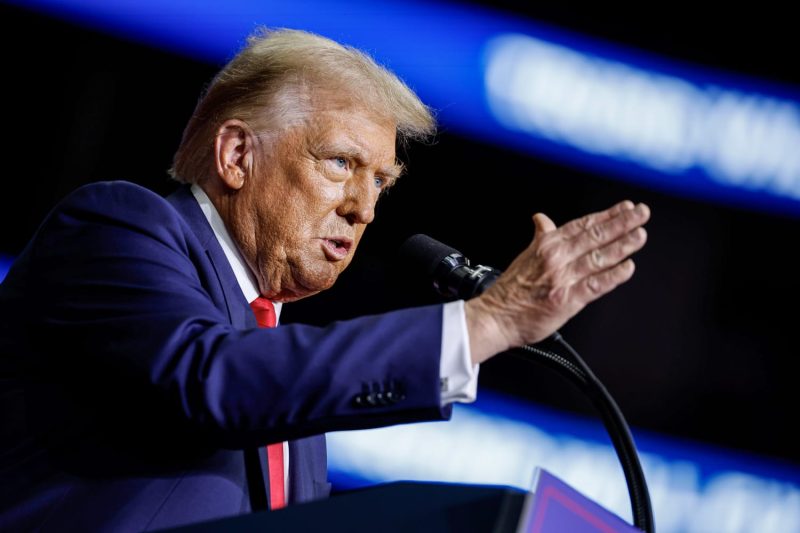In today’s global economy, the impact of political decisions on businesses is more significant than ever before. Donald Trump’s recent tariff threats have sent shockwaves through the U.S. business community, prompting companies to urgently seek out lobbyists and loopholes to navigate the uncertain landscape. The repercussions of such protectionist measures can be far-reaching, affecting industries across the board.
One of the immediate responses from U.S. companies to Trump’s tariff threats has been a heightened focus on lobbying efforts. Lobbying has long been a common strategy employed by businesses to influence policymakers and sway decisions in their favor. With the specter of tariffs looming large, companies are now scrambling to engage lobbyists who can advocate on their behalf and protect their interests. By investing in skilled lobbyists, companies hope to gain access to key decision-makers and shape the tariff policy in a way that minimizes the impact on their bottom line.
Moreover, the search for loopholes has become a critical part of companies’ strategy to mitigate the effects of tariffs. Loopholes refer to legal provisions or technicalities that allow businesses to circumvent certain trade restrictions or tariffs. The complexity of trade regulations means that there are often opportunities for companies to navigate around tariffs through careful planning and creative interpretation of the rules. As a result, companies are exploring every possible avenue to exploit loopholes and minimize the financial burden imposed by tariffs.
The urgency with which U.S. companies are seeking out lobbyists and loopholes underscores the disruptive nature of Trump’s tariff threats. For businesses that rely on international trade, tariffs can lead to increased costs, disrupted supply chains, and reduced competitiveness in the global market. In response to these challenges, companies are adapting their strategies and exploring new ways to protect their interests in an uncertain trade environment.
Beyond the immediate implications for individual companies, Trump’s tariff threats also have broader implications for the U.S. economy as a whole. Trade tensions can trigger a domino effect, impacting not only businesses directly involved in international trade but also suppliers, consumers, and the overall economic growth. The ripple effects of tariffs can create a ripple effect that reverberates throughout the economy, leading to job losses, price hikes, and reduced consumer confidence.
In conclusion, the scramble for lobbyists and loopholes in response to Trump’s tariff threats highlights the complex and interconnected nature of the global economy. As businesses navigate the uncertainties of trade policy, their ability to adapt, innovate, and collaborate with policymakers will be crucial to weathering the storm. By investing in strategic advocacy and leveraging legal avenues to their advantage, U.S. companies can position themselves to thrive in a turbulent trade environment.
Going forward, it will be essential for businesses to stay informed, agile, and proactive in managing the challenges posed by protectionist measures. By seizing opportunities for advocacy and exploring creative solutions to tariff-related issues, companies can strengthen their resilience and preserve their competitiveness in an ever-evolving global marketplace.
